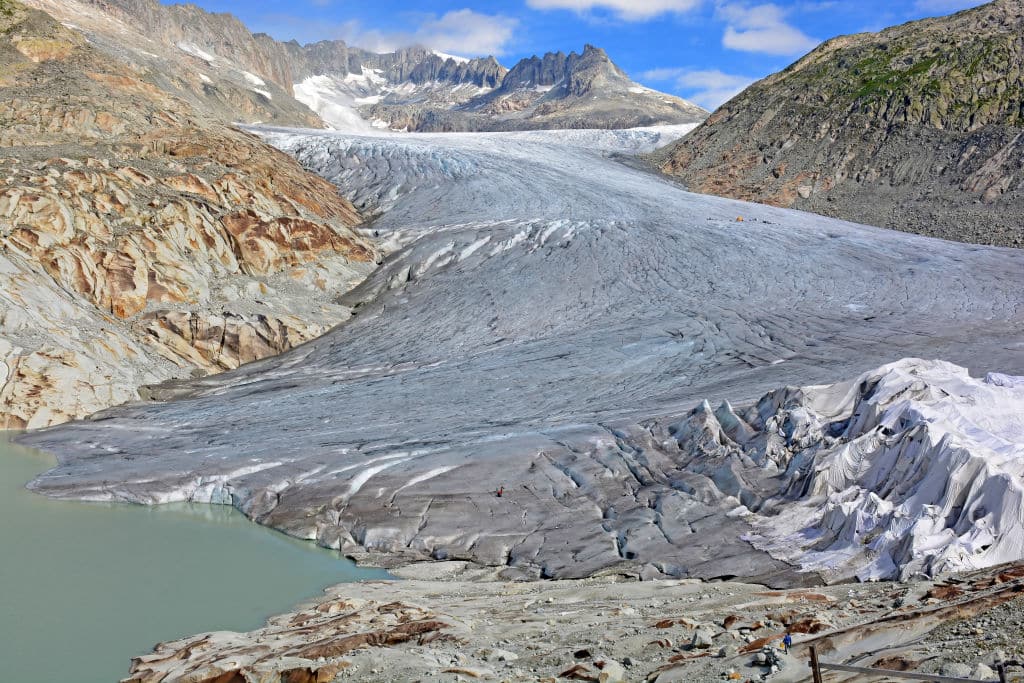Freezing Point on Swiss Alpine Summits Reaches a New High, Another Sign of Climate Change

 Why you can trust us
Why you can trust us
Founded in 2005 as an Ohio-based environmental newspaper, EcoWatch is a digital platform dedicated to publishing quality, science-based content on environmental issues, causes, and solutions.
On Monday, meteorologists in Switzerland sent weather balloons over Alpine country in search for the freezing point. The weather balloons had to rise over 5,100 meters (over 17,000 feet), before finding the freezing point, setting a new record and breaking the previous highest freezing point of 27 years ago.
Normal freezing points are about 3,000 to 3,500 meters (9,800 to 11,500 feet), but the current freezing point is even higher than the famed Mont Blanc, the tallest Mountain in the Alps measuring about 4,807 meters (15,771 feet). Weather balloons are sent up twice per day.
Experts say climate change is to blame, as heatwaves continue throughout Europe. Typically, freezing points in the highest summits of Switzerland remain well below 5,000 meters. But this week, MeteoSwiss reported a freezing point 5,184 meters (17,008 feet) high, making it the highest recorded freezing point for the country. The previous record was a freezing point at 5,117 meters high, which was measured on July 20, 1995.
As the cold temperatures are found higher and higher up, animals that depend on the cold must migrate higher. But they can become stranded when they reach the summits and have nowhere else to go. With the climbing freezing point, ice is also melting rapidly.
“Glaciers in the Alps are so completely off from what we’ve seen before. I’m really alarmed by the situation,” glaciologist Matthias Huss tweeted earlier this month. “The measurements collected at Griesgletscher today show that even with respect to the previous record in 2003 we’re one month ahead with melting. And no relief in sight.”
Glaciers in the Alps are already expected to face their highest mass losses since record-keeping began about 60 years ago, Reuters reported. With business as usual and rising emissions, glaciers in the Alps are expected to lose 80% or more of their current mass by the end of this century. But the glaciers could disappear even faster with more heatwaves like we’re seeing now.
“We are seeing model results expected a few decades in the future are happening now,” Huss said. “I did not expect to see such an extreme year so early in the century.”
This week, a melting glacier in the Alps has even shifted the border between Switzerland and Italy, leading to a dispute over a lodge, The Guardian reported.
In France this weekend, meteorologists also measured a freezing point higher than 5,000 meters above Bordeaux. Warm winds then moved from Bordeaux toward the Alps.
Subscribe to get exclusive updates in our daily newsletter!
By signing up, you agree to the Terms of Use and Privacy Policy & to receive electronic communications from EcoWatch Media Group, which may include marketing promotions, advertisements and sponsored content.

 233k
233k  41k
41k  Subscribe
Subscribe 




